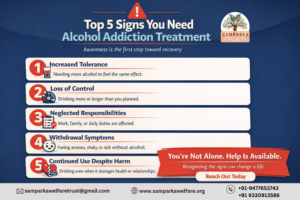Drug and alcohol addiction is a growing problem worldwide. Rehab centers play a crucial role in helping people overcome this challenge.
However, the success of these centers relies heavily on the training and development of their staff. This blog will explore how drug and alcohol rehabilitation improves their staff training and development for their patients’ better outcomes.
Importance of Staff Training and Development in Drug and Alcohol Rehabilitation
Effective addiction rehabilitation requires a holistic approach that considers the physical, psychological, and emotional aspects of addiction. Thus, staff members must have the necessary knowledge and skills to address these issues.
Proper training and development can equip them to handle various challenges that arise during the treatment process:
- Managing relapse
- Handling aggressive behaviour
- Providing emotional support.
Assessing Staff Training Needs
Assessing staff training needs is the first step towards creating an effective training program. A needs assessment can identify the areas where staff members lack skills and knowledge. It can also reveal gaps in the existing training program, which can be addressed through further development.
Creating a Comprehensive Training Program
A comprehensive training program should cover various aspects of addiction treatment, including assessment, diagnosis, intervention, and aftercare. It should also include training on effective communication, counseling techniques, and relapse prevention.
Incorporating Evidence-Based Practices
Evidence-based practices have proven to be effective in addiction treatment. Incorporating these practices in staff training can improve the quality of care provided to patients. Examples of evidence-based practices include cognitive-behavioral therapy, motivational interviewing, and contingency management.
Providing Ongoing Training and Support
Ongoing training and support can help staff members stay updated with the latest developments in addiction treatment. It can also provide them with the necessary support to deal with the challenges they face on the job. Regular supervision and feedback can also improve the quality of care provided to patients.
Encouraging Continuing Education
Encouraging staff members to pursue continuing education can help them in staying abreast of the latest developments in addiction treatment. It can also enhance their skills and knowledge, making them better equipped to provide quality care to patients.
Evaluating the Effectiveness of Training
Evaluating the effectiveness of staff training is crucial to identify areas that need improvement. It can also help in measuring the impact of training on patient outcomes, staff performance, and overall organizational effectiveness.
The Role of Technology in Staff Training
Technology can play a significant role in staff training and development. Online training modules, webinars, and e-learning courses can provide staff members with flexible, convenient, and cost-effective training options. Technology can also help in tracking the progress of staff members and identify areas that need improvement.
Improving staff training and development is critical to the success of addiction treatment and rehabilitation centers. By investing in staff training and development, rehab centers can improve patient outcomes and contribute to the overall well-being of society.
Samparka Welfare Trust offers drug and alcohol rehabilitation that provide optimum results. Also, its staff are trained and experienced for years. Moreover, it provides its staff with on-time training and development programs. Talk to its professionals to know more about the services of Samparka Welfare Trust.







